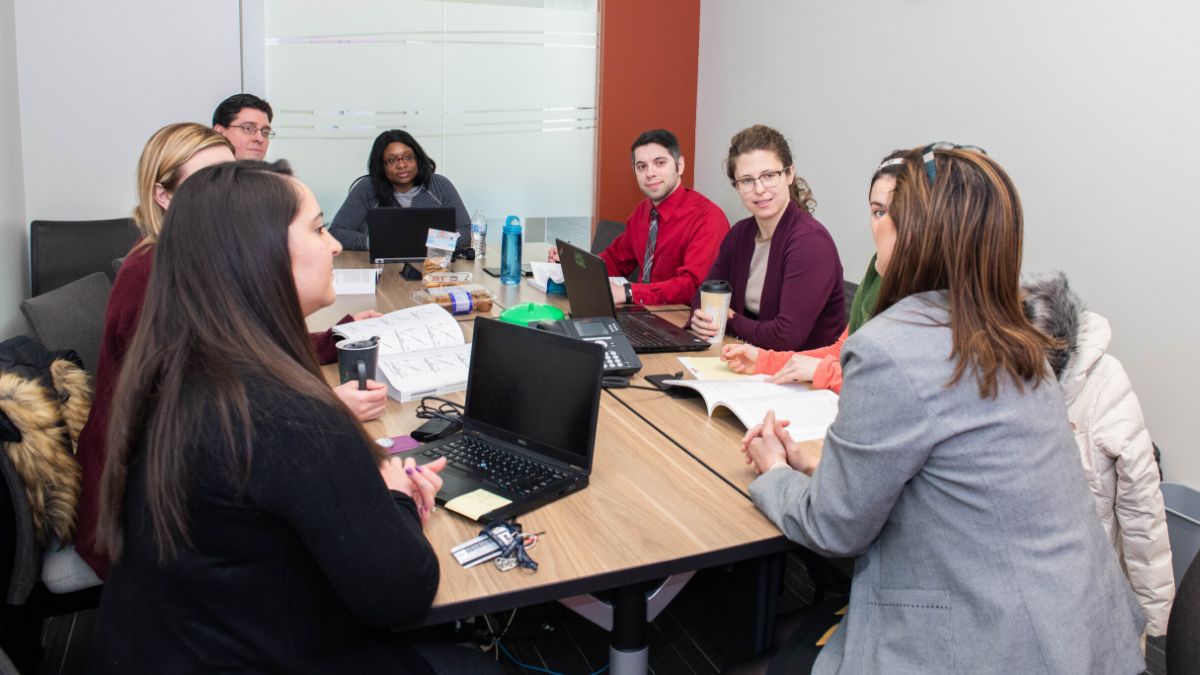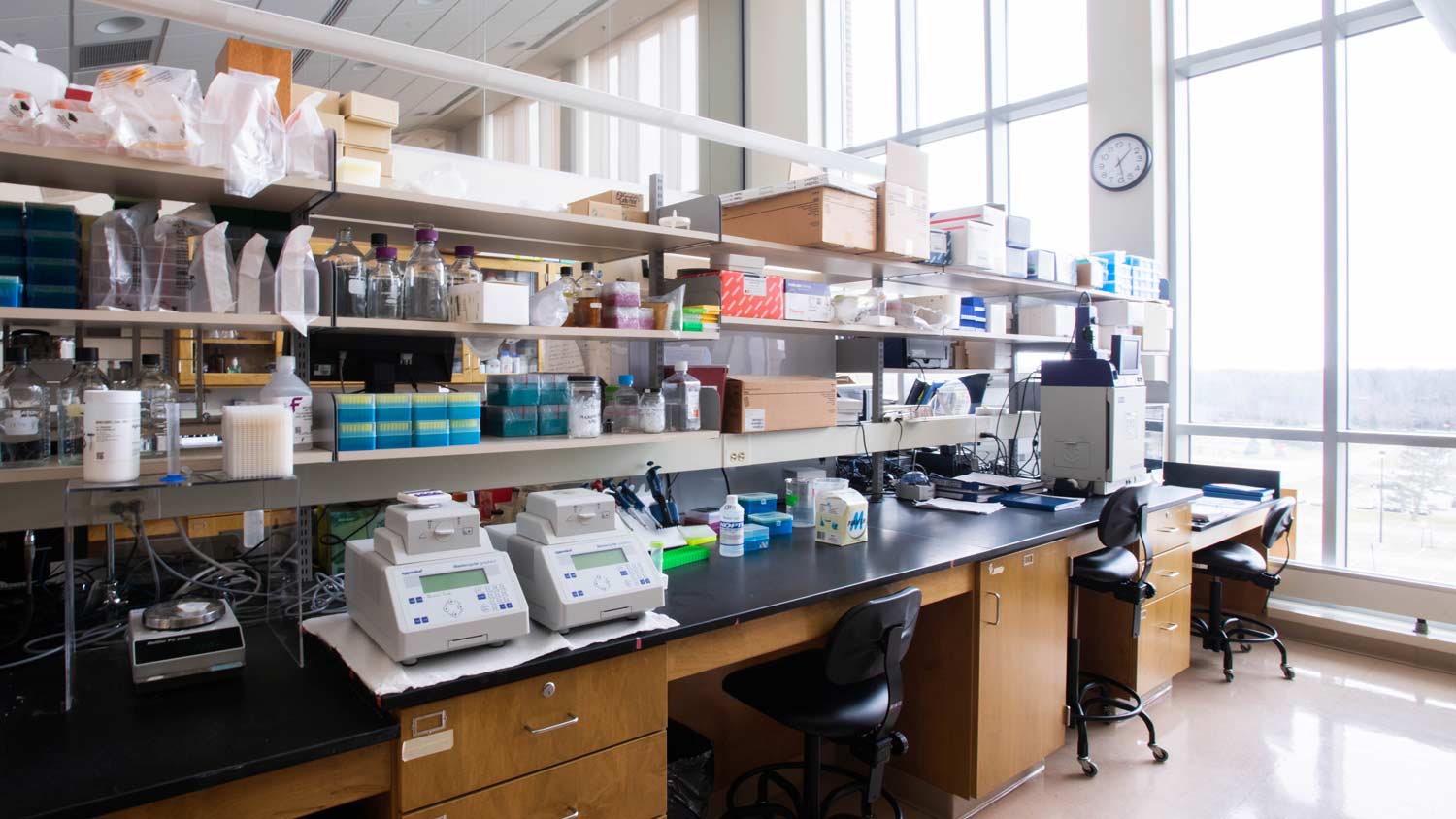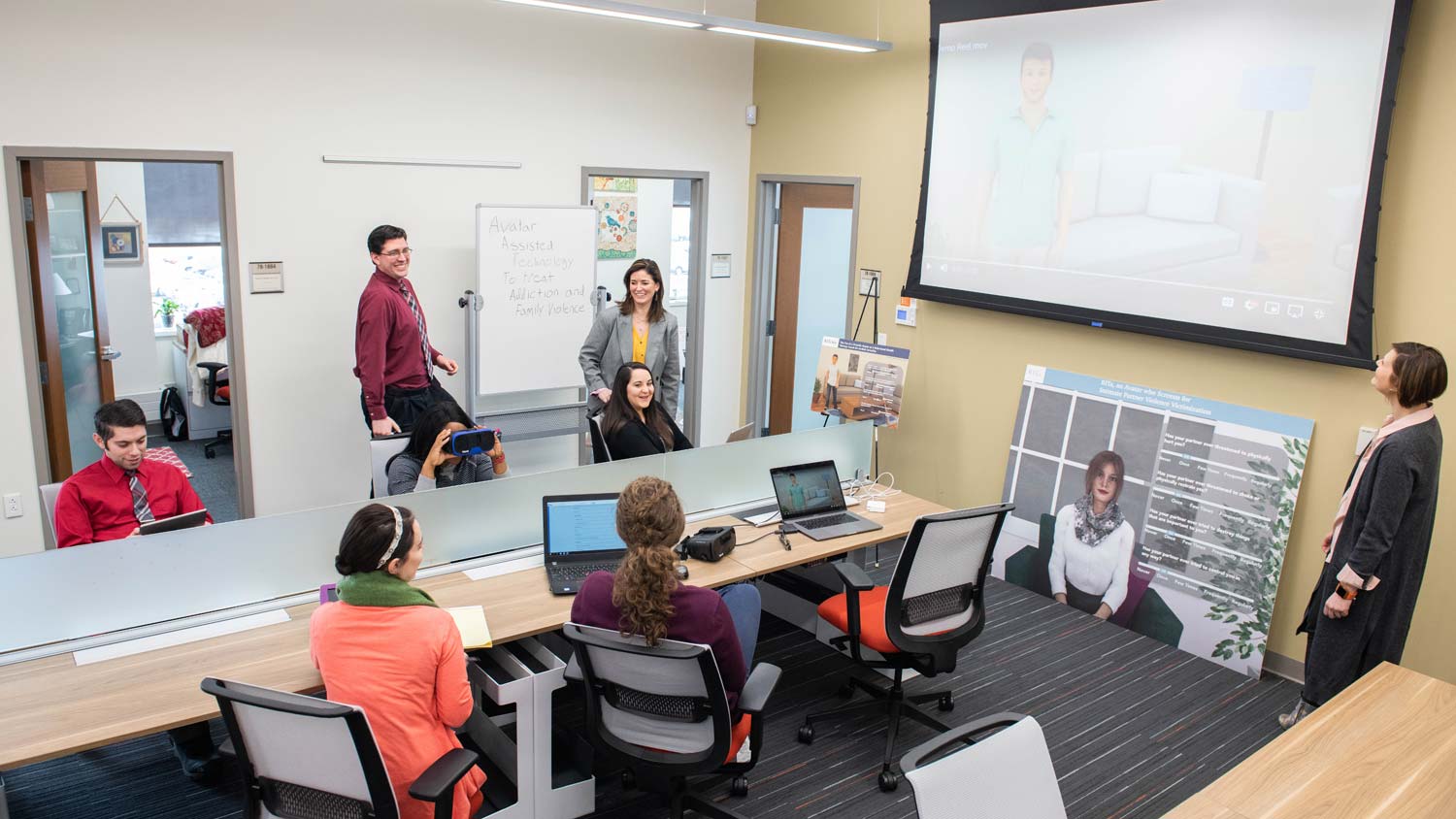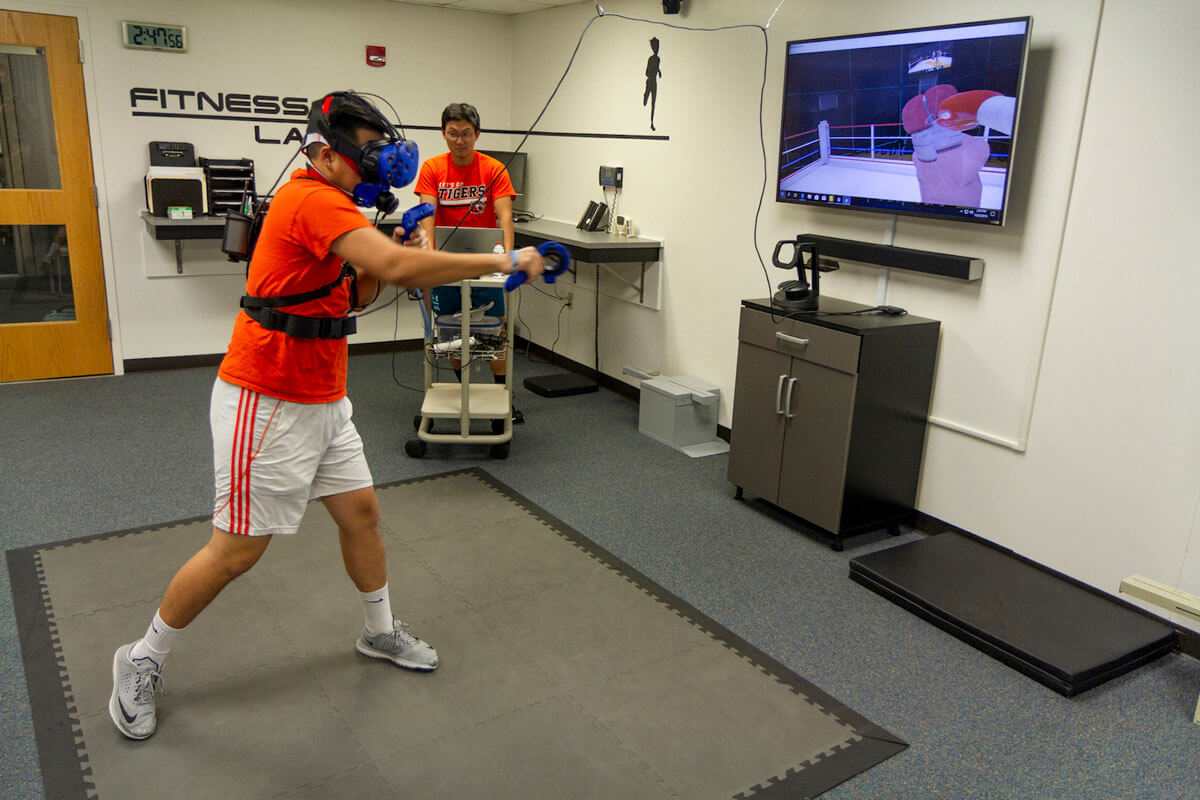Research Initiatives
Researchers at RIT’s College of Health Sciences and Technology are actively exploring new approaches to treating behavioral health issues and addressing the social ramifications of substance abuse, addiction and male aggression. Other research areas include community nutrition, global health issues, and autism and neurodiversity research.
Research Initiatives
Wegmans School of Health and Nutrition
The Wegmans School of Health and Nutrition conducts educational and healthcare research that addresses vital health issues. With expertise in health and well-being management, exercise science, dietetics and nutrition, and nutritional sciences, we prepare tomorrow’s leaders in healthcare research. We engage students to work with community and global partners to translate findings into solutions that positively impact acute and chronic health and nutrition challenges.
Learn about the Wegmans School of Health and Nutrition Research Initiatives.
Curbing Infections
Robert Osgood, associate professor of biomedical sciences, conducts cutting-edge research on biofilms (self-attached microbial communities attached to living and non-living surfaces), specifically the environmental factors and conditions that influence biofilm development of bacterial pathogens of the oral cavity and ear. What sets this research apart from other universities is that undergraduate students are not only involved in the research, but that they present their findings at various conferences. And numerous students have won first-place awards for their research and presentations doing just that.
Infectious Diseases, Genetics and Immunology
Bolaji Thomas, an associate professor of molecular biology, focuses his current research on infectious diseases, population genetics, and immunology. He has received recognition for his academic and research endeavors from such world-renowned organizations as the American Association of Immunologists, The Wellcome Trust, Marine Biological Laboratories Fellowship, and UNDP/World Bank/WHO Special Program for Research and Training in Tropical Medicine.
Developing Autism and Neurodiversity Research
The Center for Applied Psychophysiology and Self-regulation teaches effective coping skills to children and young adults with anxiety or autism through role-playing computer games integrated with biofeedback sensors and stress-reduction techniques; and provides research and services through the Parent Effectiveness Program for AutismUp, a Rochester-based organization for family members with autism.
Addressing Behavioral Health Issues
With a focus on addiction, trauma, family violence, and child and adult psychiatry, CHST’s behavioral health research focuses on the reciprocal relationship between the overall well-being of an individual and human behavior. Research in this area seeks to highlight the importance of the behavioral health-care field and the need for more clinicians and scholarship in the area. CHST acknowledges that improving behavioral and mental health care is a community effort, and as a result, actively forms community partnerships.
RIT and Rochester Regional Health Alliance
Sickle cell disease, malaria, and immunology are only a few of the subjects College of Health Sciences and Technology is researching as part of the fruitful partnership known as the RIT and Rochester Regional Health Alliance.
Research helps current students gain valuable lab experience and grants them the opportunity to solve unique problems faced by Rochester Regional Health. Some examples of the partnership’s innovation include unique methods to transport and process blood specimens, a mobile centrifuge and carrier, human-centered hand washing dispenser systems, wristband sanitizer, in-hospital patient tracking systems, blood cooler carrier inserts, and a feedback device designed to accelerate the recovery of those struggling with posture challenges.














